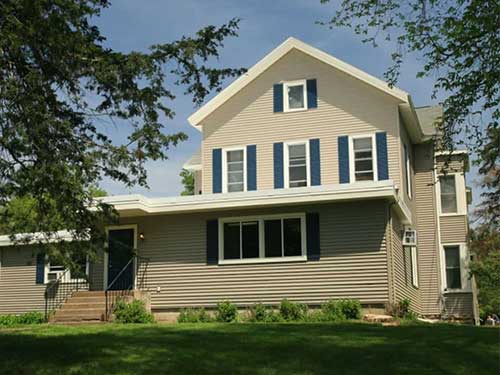Withdrawal Causes
Causes of alcohol withdrawal
Withdrawal is the often distressing and sometimes dangerous process through which a person who has become dependent upon an addictive substance rids his or her body of that substance. Opioids such as heroin and certain prescription painkillers are notorious for prompting painful withdrawal symptoms when a person attempts to stop abusing these drugs without professional help.
However, many people do not realize that some of the most painful and potentially harmful withdrawal symptoms are associated with a drug that is deeply integrated into modern American society: alcohol.
Many men and women are capable of using alcohol in moderation; however, for countless others, alcohol use quickly leads to alcohol abuse, which often prompts the onset of alcohol dependence. When a person becomes addicted to alcohol, a condition that is referred to clinically as alcohol use disorder, his or her body will adapt to the presence of alcohol and will crave it when the person has not been drinking. These cravings are often one of the first signs of alcohol withdrawal.
As indicated in the first paragraph of this page, an individual’s body goes into a state of withdrawal when the individual stops or significantly reduces the abuse of the substance or substances upon which he or she has become dependent. When a person has become dependent on alcohol, he or she will drink with increasing frequency and will consume increasingly larger amounts of alcohol. The increase in quantity is due to tolerance, which means that as the person’s addiction deepens, his or her body will need greater amounts of alcohol in order to achieve the desired effect. Thus, the longer a person’s alcohol addiction continues untreated, the quicker he or she may go into withdrawal because his or her body will have adapted to the frequent intake of large amounts of alcohol.
Withdrawal, which can include painful physical and psychological symptoms, is evidence that alcohol addiction is much more serious than merely a lack of willpower or poor self-control. When a person has become addicted to or dependent on alcohol, he or she stops drinking out of desire and begins drinking out of necessity. While the type and intensity of alcohol withdrawal symptoms may vary depending upon several factors, including the nature and severity of the person’s alcohol use disorder, they share common traits of being painful and of being alleviated when the person resumes his or her abuse of alcohol.
Withdrawal Signs
Signs of alcohol withdrawal
It is not an exaggeration to note that, in certain cases, alcohol withdrawal symptoms can be dangerous to a person’s health. It sounds counter-intuitive, but in cases of individuals who have been engaging in heavy long-term alcohol abuse, stopping suddenly can actually be harmful. Because of the potential for both pain and damage as a result of alcohol withdrawal, it is often essential that a person who attempts to end his or her alcohol abuse do so within the confines of an effective addiction treatment center that can provide medically monitored detoxification services.
Depending on a number of factors that are specific to the individual, a person who has become dependent upon alcohol may experience the following withdrawal symptoms when he or she either does not or cannot consume alcohol:
- Intense cravings for alcohol
- Fever
- Nausea
- Vomiting
- Depressed appetite
- Intense headaches
- Insomnia
- Nightmares
- Extreme exhaustion
- Pupillary dilation
- Dramatic mood swings
- Confusion
- Agitation and/or irritability
- Anxiety
- Depression
- Cold, clammy skin
- Rapid heart rate
- Seizures
- Tics, tremors, and/or shakiness
- Inability to think clearly
- Hallucinations
Anyone who exhibits any of the symptoms listed above when he or she attempts to stop drinking may be in need of professional treatment.
Why Seek Treatment?
Why seek treatment for alcohol addiction near Minneapolis & St. Paul, MN
As noted above, alcohol withdrawal can be both painful and dangerous. In addition to putting one’s health at risk, attempts to withdraw from alcohol without professional assistance have an increased likelihood of failure, as the temptation to consume alcohol and end one’s temporary suffering can be overwhelming. Unfortunately, trying and failing to end one’s alcohol abuse can have the detrimental effect of driving a person deeper into alcohol abuse as a way to deal with the shame and frustration of being incapable of quitting. Such experiences may also make a person less likely to pursue future attempts to overcome his or her dependence on alcohol.
Of course, easing the withdrawal process is just one of many benefits to seeking treatment for an addiction to alcohol near Minneapolis & St. Paul, Minnesota.
In addition to being difficult to overcome, alcohol addiction can also wreak a wide range of damage in virtually all aspects of a person’s life. People who struggle with alcohol abuse and alcohol addiction are at risk for several physical and psychological problems, including but not limited to liver damage, heart disease, vision problems, short- and long-term cognitive deficiencies, and increased risk of developing certain types of cancer. Alcoholism is closely associated with family discord, violence, diminished interpersonal relationships, academic failure, job loss and unemployment, financial problems, legal problems, and a host of other negative outcomes.
With effective comprehensive treatment at our residential rehab center, a person can end his or her alcohol addiction, begin to heal from past harm, and avoid future damage. Individuals who participate in residential treatment at our addiction rehab center have the opportunity to work with a team of dedicated professionals, including psychiatrists, nurses, counselors, technicians, and a dietician, to complete a personalized treatment plan that features a variety of therapeutic interventions that are designed to prepare him or her for long-term recovery.
To learn more about treatment for alcohol addiction at our rehab center, or for more information about any aspect of our programming, please feel free to contact us at your convenience. We look forward to answering all of your questions and helping you to make the best decision for yourself or for a loved one.











